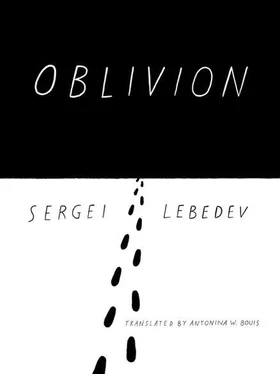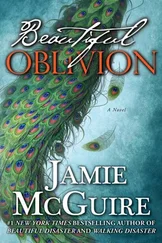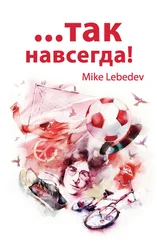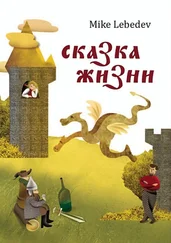This can be called a crime against reality; a rather naive formulation, but one which accurately reflects the essence and can be interpreted more fully: much of what Grandfather II and those like him did was a crime against reality.
Reality always takes revenge on those who cut it down, who simplify it, who deny its multiplicity; it avenges as implacably as do the laws of nature; we are not always able to recognize events not as random but in accordance with the laws of nature.
With his commission of the miniature camp, Grandfather II had without realizing it overwound a tight spring; before he was a camp warden among others, not the best, and not the worst in those times, where the moving force was a depersonalized bureaucratic cruelty; he was also depersonalized, he did not stand out, his shoulder boards and uniform spoke for him, managed for him, while he was merely the wearer of the uniform, something secondary in relation to his rank and duty. But now—and there was a reason the craftsmen felt they were doing something inappropriate—now he had crossed the line of his work and tied his fate and his son’s fate with the camp, in life and death.
Had Grandfather II been simpler and more volatile, he might have beaten his son, expressed his anger, shouted; but his anger was not expressed directly, it was held inside, ripening; the anger went through the coils of his inner being, acquiring a toxic thickness and essentially ceasing to be anger. It was transmuted into the ability to take a person to the most painful limit, force him to confront himself; the ability to make the most extreme and truthful deed meaningless.
Anger openly expressed reinforces the event that caused it; that is why Grandfather II, who knew the fury he felt instantly, as if it was always on a boil under his skin, burning his tongue, blistering his fingers, remained outwardly calm. A person who acted against Grandfather II’s will had to undo it himself, as if sincere repentance was not enough: Grandfather II did not believe in words. He needed the action to be overturned by a counteraction, the antipode of the deed; Grandfather II swept away the traces, leaving no signs in memory that evinced his evildoing: the witness destroyed his witnessing, went backward over the path of his intention, undoing it.
Grandfather II said the boy had to repair the toy camp; he would not leave the room until he had done so, he would not go to school, and food would be brought to his room. Grandfather II locked the door with such force that the key got bent in the lock, the lock was broken, and the boy was truly locked in. Grandfather II did not believe that his son would escape through the window: he must have felt his will was a force like gravity which locked the boy up, squeezed him inside the room as if in his fist, and now he decided to wait, without loosening his grip, to wait and let time do its work.
Left alone with the inability to do what was demanded, the boy was supposed to feel time collapsing upon him, bringing no reprieve now or in the distant future; you sit there, knowing there is no way out, and the passing hours exacerbate your condition, exhausting and destructive.
Grandfather II saw his son as a traitor, he would have disowned him had there been examples of that, but in those days it was only sons who disowned their fathers. So Grandfather II did not punish the boy—he was forcing the boy to disown himself.
Seven was no age at all, thought Grandfather II, who was used to reckoning time in prison terms—ten years, fifteen, and you still have time after that to live—so a seven-year-old had to reject himself and curse himself daily, and then Grandfather II would take him, drained, limp inside, and mold himself another son.
His wife could no longer have children, and the barrenness of her womb depressed Grandfather II, who still felt the desire for fatherhood. Fatherhood he imagined was a plastic process, similar to sculpting, and he wanted to bring into the world not a new life—a living thing while it is alive cannot be molded, it has its own laws—but something meek, suitable for his creative efforts.
That may be why his wife, before becoming barren, had two stillborn children after the boy. She gave birth, and then her female nature died, became insensible, as if her body was horrified by her husband’s true desires.
The boy did not come out of the room for two days; he refused food the first morning, and Grandfather II ordered that he not be fed forcibly. He knew that the boy would rebel at first—it came out the way he wanted—and then the arrest would undermine his strength, and the more the boy believed he could prove something to his father, to stand up for himself, the faster his resistance would die out.
In the two days that the door was locked, the boy used his penknife to pry up a rotten floorboard and he squeezed into a space leading under the house. Grandfather II was at a loss for the first time: he couldn’t call out a search party for his son. But it wasn’t necessary—the boy was found.
The camp quarry, wide and deep, even in those days seemed to tilt the surrounding mountains, tilt the plain on which the nascent town stood. If a man, either drunk, or from joy or grief walked so that his legs carried him on their own, he would end up at the quarry.
The boy who ran out into the night not knowing where to go was doomed to end up at the quarry because of the town’s configuration; the quarry was not guarded at night. At that hour it was the eye of the earth for the boy, it saw the boy everywhere, he had nowhere to hide. The quarry was his father’s creature, and the fear of his sleeping father was transferred to the sleepless eye of the quarry; Grandfather II had brought his son there, to the edge of the top ledge, and the boy thought there was a general madness in the stubbornness with which people, obeying his father, dug a pit, and the spirals of the quarry ledges seemed like a reflection of his father’s will twisted into a spring. The boy went to the quarry because it was only there, in the center of the pupil, that he could he hide from the all-penetrating gaze; the pupil saw everything but not itself.
The work brigades found him in the morning; a sand bed had collapsed beneath him and he’d fallen; the body lay on the stones in a pile of sand. He had fallen by the wall they were dynamiting to find ore with eudialyte—a bright red transparent mineral; in daylight the whole side of the quarry was covered with red splotches. Eudialyte was called shaman’s blood by the local tribes, who believed it to be the traces of a battle with a dark shaman, conquered and secured into the cliff over the lake; the eudialyte now flared, as if the boy’s death had strengthened its glow, and it was impossible to chip out all the grains of the mineral from the ore, as the foreman had wanted to do at first, realizing what Grandfather II would see. He was afraid—the stone was a witness, the stone was an accuser.
Grandfather II went down into the quarry; the brigades were led out, and only the doctor was with him. Soon the camp warden came back up; the body was left on the stones, left to the doctor and orderlies. Grandfather II banished his son—the boy had tried once again to go against his will. Grandfather II did not believe the boy’s death was an accident, but he himself was the least at fault: he blamed it on impudence, disobedience, stubbornness, not knowing the value of life; now he sought reasons that forced the boy to do that, but he did not seek them in himself: someone had spoiled the boy, set him against his father, confused, bewitched, plunged him into madness; Grandfather II considered the destroyed toy camp a sign of madness, of spiritual illness.
Grandfather II banished the dead boy, returning to the memories of the obedient, proper son he had been just a few months earlier, and when he thought of the boy, he thought of the former boy; his son lay on the rocks amid the bloody shimmer of eudialyte, but Grandfather II no longer could see him. The eudialyte burned his eyes, eternal, indestructible, and he left the quarry, ordering the chief of construction to blow up the spot where his son died. They made vertical blast holes in order to slice off a thick layer, the dynamiters laid the charge, but when the roar of the boulders ceased and the dust and smoke were carried away by the wind, they all saw that the eudialyte vein was revealed as being bigger and more powerful; the fresh grains of it, not yet muddied by the cold and rain, glowed red in the gray rock. Grandfather II ordered a second blast, but the stone would not yield, merely showing deep cracks; after that, the camp commandant never looked at the north wall of the quarry, and even the observation platform was moved so that the place where the boy died could not be seen.
Читать дальше












